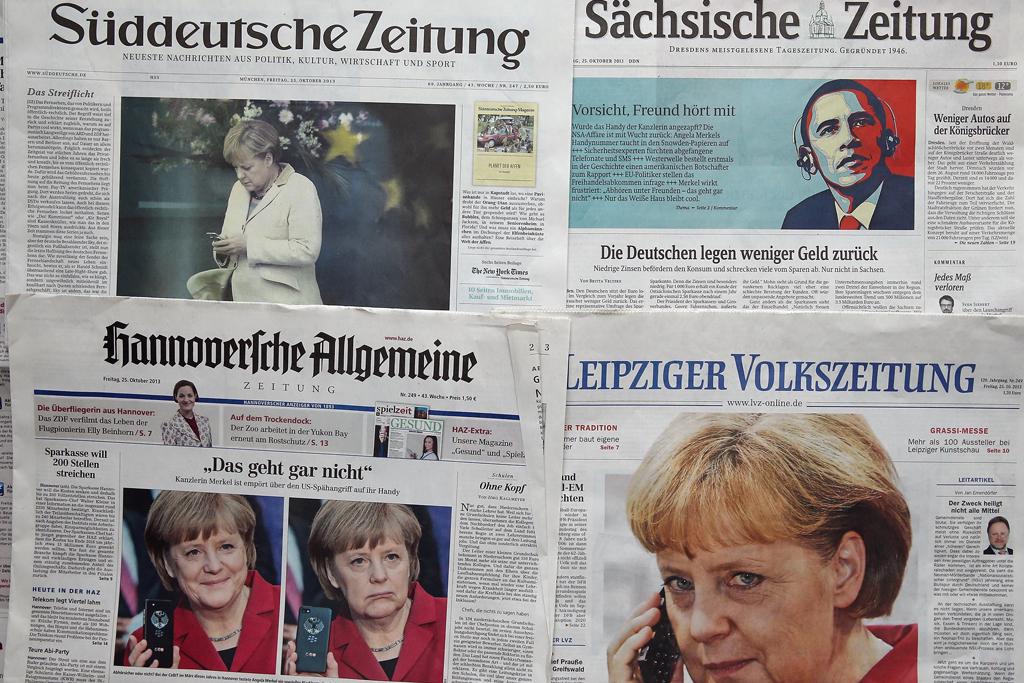Germany, Brazil work on draft UN resolution to end excessive spying
German newspapers with front page photos referring to the NSA eavesdropping of German Chancellor Angela Merkel’s phone scandal on October 25, 2013 in Berlin, Germany.
Germany and Brazil were reported to be working together to draft a United Nations resolution Saturday, calling for the right to privacy on the internet and an end to excessive spying.
The news followed revelations this week that the United States’ National Security Agency had monitored email and telephone communications of top officials, including the leaders, of both countries.
The German magazine Der Spiegel reported Saturday that German Chancellor Angela Merkel's mobile telephone had been listed in the NSA's Special Collection Service (SCS) since 2002, which means it may have been bugged for more than a decade.
However, It's unclear if conversations were recorded or what information, if any, was collected. Both German and US spokespersons have declined to comment on the story.
Still, it was revealed that President Obama had apologized to Merkel on Wednesday, according to Spiegel, with the Frankfurt General Newspaper reporting that Obama had told Merkel he was unaware of the surveillance.
The magazine went on to cite a 2010 secret document that said NSA and CIA operatives had tapped communication in Berlin's government district and some 80 other locations around the world, including Madrid, Prague, Geneva and Paris.
Such relevations have tested international relations, with Germany preparing to send its top spy chiefs to Washington next week for talks with officials in the White House and the NSA over allegations the cell phone of Merkel was tapped.
Merkel said this week that relations with the US have been "severely shaken" by the snooping allegations, and "trust needs to be rebuilt."
The non-binding resolution calls for the expansion of international privacy rights under the International Covenant Civil and Political Rights — which came into force in 1976, long before the internet.
A draft of the resolution will be sent to the general assembly's human rights subcommittee next week. It would be put to the full general assembly late next month.
"This resolution will probably have enormous support in the GA [general assembly] since no one likes the NSA spying on them," an unidentified diplomat told Reuters.
While the resolution won’t have the power to stop or even restrain NSA spying, it would represent a strong rebuke of America's surveillance activities and ramp up pressure on Washington to end its excessive snooping on other countries.
More from GlobalPost: Europe demands answers over NSA spying
Every day, reporters and producers at The World are hard at work bringing you human-centered news from across the globe. But we can’t do it without you. We need your support to ensure we can continue this work for another year.
Make a gift today, and you’ll help us unlock a matching gift of $67,000!
